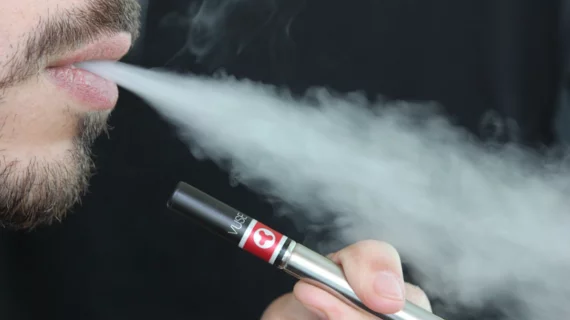Illinois ties one death to vaping
A death in Illinois from pulmonary illness has been linked to the use of e-cigarettes, or vaping, according to the CDC. The Illinois patient is the first death reported amid an outbreak of lung illness that is somewhat mysterious but tied to vaping.
The report comes just days after the CDC announced it would help a handful of states investigate lung disease associated with e-cigarette use after 120 people across 15 states became injured.
The CDC held a call Aug. 23 to provide an update on the issue. As of Aug. 22, there were 193 potential cases in 22 states severe lung illness tied to vaping and e-cigarette use. While e-cigarettes have been noted to help smokers quit, the products can also damage blood vessels and cause other serious harms.
The CDC and states have not identified the cause of death, but there is no evidence of an infectious disease and cases have reported e-cigarette product use. Investigators from the agency also haven’t identified any specific product of compound linked to all the illnesses. Some patients have admitted to using THC––a chemical in marijuana––n their vaping products.
The agency also didn’t have much of an explanation for the recent surge in lung disease cases, noting that reported cases could have been occurring before the investigation began. The investigation is ongoing.

